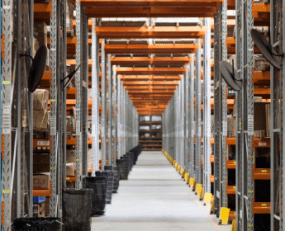
Ti’s CEO was recently interviewed alongside the CEO of UK Warehousing Association (UKWA) Peter Ward in a session entitled ‘Robots plus Workers’ at the KronosLIVE 2019 event at the Radisson Edwardian Hotel at London’s Heathrow Airport. Moderator Kirsty Adams, editor of leading publication SHD Logistics Magazine, started the conversation by asking how robotics would impact the industry and whether the future would be ‘workerless’. Manners-Bell replied that this was definitely one possible outcome. He referenced companies such as JD.com in China which were developing huge ‘dark warehouses’ staffed by fewer than 10 workers. However, in the immediate future it was more likely that the economic value released by automation would result in more employment rather than less, although much of this employment could be realised in complementary sectors rather than in logistics sector itself. In short, there was a huge threat to the millions of people employed in low value, repetitive logistics tasks, especially in warehousing.
Manners-Bell went on to say that this challenge was not just to logistics companies as they transitioned their business model from one based on the out-sourcing of large labour forces to one focused around capital investment in robotics and automation. It was also a major concern to governments which had the task of educating and training a new generation of workers in higher value adding activities.
One question directed to the panel related to the sort of jobs that would be created in the new digitized and automated environment. Manners-Bell commented that it was unrealistic to expect warehouses workers to transition to data scientists although the role of many would transition from picking, lifting, moving and packaging to one of monitoring robots to make sure they were doing what they were being asked.
In terms of headwinds to the adoption of the new technologies, Manners-Bell said that progress could be slowed by governments and labour organizations concerned over the social consequences of robotics. Workers would be competing against cheaper robots which would have an impact on pay; many jobs would be relocated or even lost completely; and governments would need to develop new ways of generating tax revenues. Mr Ward added that margins for many companies in the sector were so slim that they just couldn’t afford to invest in the new technology.
Responding to a question about standardization throughout the industry, Manners-Bell wrapped up the session by saying that the industry was being driven forward by the major e-commerce platforms, Amazon, Alibaba and JD.com in particular. Their market leadership was proving an effective way in which to raise levels of efficiency in the warehouse as well as increase customer expectations.
Source: Transport Intelligence, March 7, 2019
Author: Transport Intelligence